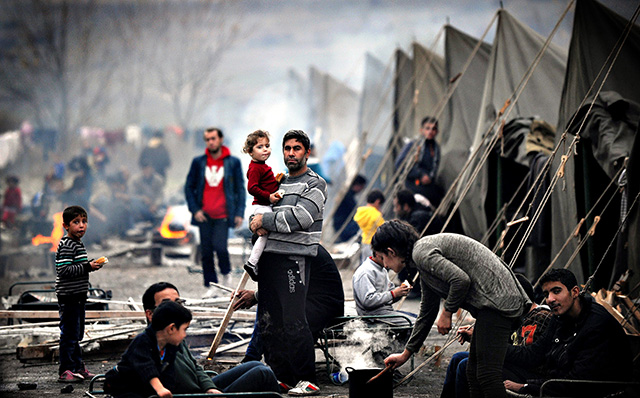Our village has gone into a deep silence and my childhood playmates are either in international camps or the citizens of foreign countries such as Europe and Australia. The houses seem to have changed into nursing homes and the elderly people, parents and grandparents are left lonely.
The families are traumatized by the death of their loved ones every once in a while. The fate plays cruelly with some of the unlucky migrants – who dream to breathe a sigh of relief in their utopia. Afghan youths emigrate from the country with the ambition to live a peaceful life and get rid of violence and bloodshed. However, some of the dreams do not come true and their imaginary world changes into dystopia. Who knows that they will be the prey of mammoth whales just in few minutes or succumbs to a bullet that will be shot by a foreign soldier – this is the destiny of a number of Afghan youths.
Of late, the body of a young man was returned to his family in Logar province. He had finished his studies last year at Kabul University’s medical school. Failure to secure employment had forced the young physician to gamble his life – his parents were told that he died a “mysterious” death somewhere between Iran and Turkey.
About two weeks ago, Austrian police saved 24 teenage Afghans who had been packed into the back of a small wagon with the doors welded shut. Some 71 others were found dead, sealed in a truck a week earlier.
A large number of Afghan youths venture out to foreign countries to flee instability and political challenges. In other words, the dire security situation prompts many Afghans to risk everything; others flee because of the country’s economic stagnation and staggering unemployment rates.
Scores of families sell their belongings or borrow money to pay human smugglers to be transported into Europe. Those who can not afford to pay for an entire family buy passage for only their youngsters, usually skilled sons, in the hope that they might obtain a brighter future in a safe and prosperous country.
“Until last year, Afghans were the largest global refugee population at 2.6 million people – almost 10 percent of the country’s entire population. Today, estimated at 12 percent, they are ranked as the second largest group (after Syrians) to have reached European shores and borders.”
According to the United Nations’ refugee agency, UNHCR, more than 40,000 Afghans have sought asylum in Europe from January until August this year.
According to the passport agency’s employees, they are now issuing an average of 2,000 passports a day, a threefold increase from six months ago. Unofficial reports from one border crossing in Nimruz province claim that over 8,000 Afghans cross into Iran on a daily basis. The total number may be much higher, given Afghanistan’s porous borders and multiple crossing points.
Unemployment has reached record heights. Domestic and foreign investments have halted, and the flight of capital is becoming a critical issue. Projects attached to international aid – one of the largest sources of employment in the past decade – have, for the most part, shut down or been placed in hibernation.
The mounted militancy in recent months i.e. the Taliban’s spring offensive on the one hand and the emergence of the Islamic State (IS) group on the other hand has filled the air with a sense of disappointment. The civilian death toll has increased with the withdrawal of foreign troops and continues unabated. Since the “war on terror” was proved futile, Afghanistan was not ripe for the transition of power from US-led NATO forces to Afghan soldiers. Nonetheless, Afghan forces have achieved on a large scale. Yet, there are a lot to be done. In another item, the nascent Afghan National Security Forces have performed remarkably well, but without international military assistance, Afghanistan’s war against terrorism and peace efforts will be in vain. In nutshell, the persistent militancy, which leads to high graph of non-combatant casualties, is one of the major reasons behind the brain drain.
Afghan MPs have also raised concerns over the current exodus and urge the government to provide job and security for the youths. No doubt, the youths play a key role in a society. If this trend continues, the country’s sovereignty will be affected and the officials will have to take serious step in this regard. The government is responsible to “form a civil society void of oppression, atrocity, discrimination as well as violence, based on rule of law, social justice, protecting integrity and human rights, and attaining peoples’ freedoms and fundamental rights; strengthen political, social, economic as well as defense institutions; attain a prosperous life and sound living environment for all inhabitants of this land; and, eventually, regain Afghanistan’s appropriate place in the international family”.
The increase in the current exodus is really a matter of great concern. The mouth-watering promises in presidential campaigns seem to be no more than a flash in the pan. The nascent democracy is highly susceptible to social, economic and political issues. In other words, Afghans suffer from social, political and economic crises in one way or another. Afghan officials have to provide job opportunities and security for the citizens to prevent from the emigration and brain drain. Hope the crises come to an end in near future.

